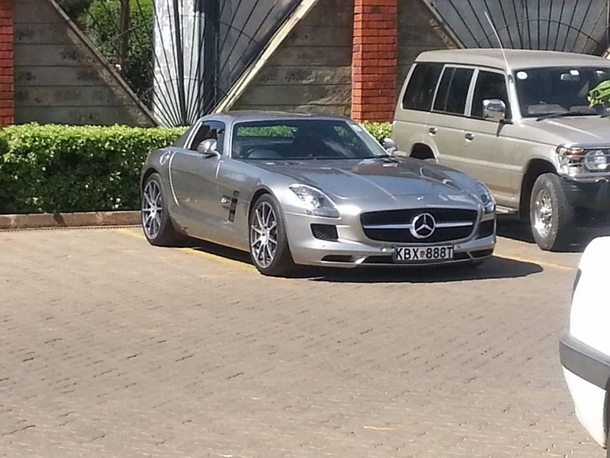Increased demand for personal cars has helped Toyota Kenya reclaim its position as the top seller of new vehicles in the country, overtaking General Motors East Africa which rode its buses to the pole position last year.
Data from the Kenya Motor Industry (KMI) — the industry lobby — shows that Toyota’s marketshare based on unit sales increased to 25.3 per cent in the five months to May from 23.6 per cent last year, overtaking GMEA whose market share dropped marginally to 21.2 per cent from 23.9 per cent in a similar period.
Total sales in the industry stood at 4,750 vehicles in the five months to May, representing a 6.5 per cent growth compared to 4,459 vehicles sold in a similar period last year, indicating an increase in consumers’ disposable incomes in tandem with overall recovery of economic growth.
The resurgence of Toyota is a signal that the new saloon car market is growing at a faster pace compared to bus and commercial truck market, reversing the market structure that had started to tilt in favour of commercial vehicle sales.
Toyota specializes in selling saloon cars and this exposed the company to the negative effects of the global economic recession and the 2008 post-election violence that saw a major decline in new car orders from individuals and corporate Kenya in 2009 and part of last year.
Toyota lost its top position for the first time last year to GMEA that was riding on strong demand for buses in the public transport sector where 14-seater vans are being phased out in favour of high occupancy buses.
The new saloon car market has also faced stiff competition from second hand dealers and parallel importation –-legal importation of similar but cheaper cars outside appointed dealer channels.
But the strong economic growth that started last year has revived demand for saloon cars, with Toyota emerging as the biggest beneficiary of the new orders.
Rival dealers with a presence in the saloon car market are also gaining form high demand in the segment, underlining the resurgence of the segment.
“Our order books are full but we were negatively affected by the earthquake that delayed deliveries by a month. There have also been delays in our assembly line and this has slowed down processing of orders,” said Ms Rita Kavashe, the managing director of GMEA.
DT Dobie, the seller of luxury car brands Mercedes and Nissan, increased its marketshare to 14.1 per cent from 12.2 per cent while CMC Motors which sells VolksWagen Passat and Land Rover brands grew its marketshare to 19.9 per cent from 13.8 per cent in the period under review.
Simba Colt, which is strong in the commercial truck market through its Mitsubishi brand, saw its marketshare drop to 17.8 per cent from 19.5 per cent, joining GMEA among dealers who have lost marketshare amid a slight recovery in the overall industry.
The dealers are blaming the loss of marketshare to supply chain disruptions brought by the massive earthquake early this year in Japan where most of vehicles sold locally are sourced from. “These challenges should clear out in the second half when we expect to grow our marketshare,” said Ms Kavashe.
Firms strong in the public transport sector are set to reap big in the medium term as the government moves to phase out 14-seater vans in favour of higher occupancy buses. The transport ministry has banned new registration of the vans beginning this year, meaning that those already licensed will not be replaced once they wear out.
The vans—most of which are used imports- have been popular among investors because of their cheap price tag but their ban is set to boost demand for local bus assemblers. GMEA is the biggest supplier of buses, followed by CMC Motors.





![Here are some of the best tuned cars in kenya by state of the art garages [PHOTOS]](../../../blog/wp-content/uploads/2013/11/29402_10151301757042065_340470732_n-e1384498044289.jpg)

![Top 20 Used Cars to Avoid Buying in Kenya – [PHOTOS]](../../../blog/wp-content/uploads/2013/11/top-used-unreliable-cars-to-avoid2-100x70.jpg)



